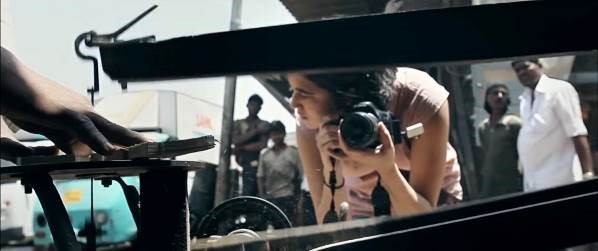A philosophical expedition that challenges preconceptions about identity, ethics, and existence

Who are you? A question with varied responses that defines your identity. The answer gives a peek into your life and existence. Ship of Theseus, directed by Anand Gandhi in 2012, is a thought-provoking Indian drama that traverses the intricate landscapes of identity, ethics, and existence. With three interconnected narratives, the film invites audiences on a philosophical journey that challenges conventional thinking.
The movie's title draws from the Ship of Theseus paradox, which question’s identity when all parts are replaced. This sets the stage for three stories: Aaliya's visually impaired photography, Maitreya's organ transplant dilemma, and Navin's ethical awakening. Delving into identity's essence, moral complexities, and human interconnectedness, the film weaves the three interconnected tales with one theme - organ transplant.
Identity's Odyssey

In the first story, a young woman regains her sight through a cornea transplant. Surprisingly, her newfound vision hinders her photography skills, overwhelming her ability to focus on subjects.
The second narrative follows a monk battling animal cruelty by pharmaceutical giants. Diagnosed with liver cirrhosis, he grapples with taking medication from the very companies he fights against for animal rights. His character is inspired by Jainism and Buddhism, reciting a poignant prayer written in Prakrit for the film.
The third story features a young stockbroker who, after a kidney transplant, is moved by a labourer’s kidney theft. He embarks on a mission to resolve the issue, leading him to Stockholm.
All stories culminate in the common thread of organ transplant.
The film closes with a symbolic nod to Plato's allegory, 'The Cave,' where individuals perceive shadows as reality. The cave's occupant in the film is fixated on his own shadow, mirroring the allegory's notion of limited perspectives, and missed enlightenment.
Cinematic Approach
Gandhi's direction presents contemplative pacing and visual artistry. Cinematography by Pankaj Kumar captures diverse emotions, while the score by Naren Chandavarkar and Benedict Taylor enhances key moments. The film's fusion of visuals and music guides viewers through introspective journeys.
Ship of Theseus has left an indelible mark on Indian and global cinema. Its exploration of deep philosophical questions within human stories earned acclaim for its emotional depth. The film's influence extends beyond its critical success, encouraging unconventional narratives and expanding cinematic boundaries.
The film is a philosophical expedition that challenges preconceptions about identity, ethics, and existence. With its interconnected narratives, it highlights life's intricate interconnectedness and urges viewers to embrace questions that define our humanity. If you are inclined towards philosophy and want to do some soul-searching, I would strongly recommend you watch this movie.











Comments